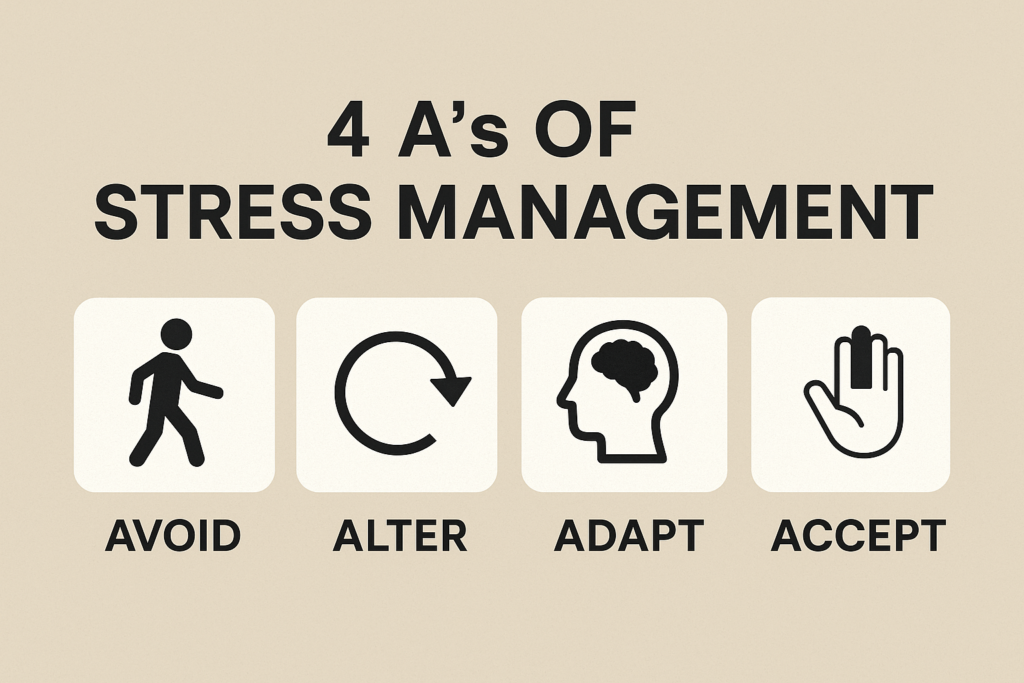Deadlines, digital distractions, and uncertainty have made stress feel inevitable. But psychologists argue that what matters most is not the stress itself, but how we respond. A simple framework—known as the “4 A’s”—is gaining recognition for its clarity and adaptability.
A Structured Approach to Stress
The 4 A’s—Avoid, Alter, Adapt, Accept—offer a clear path for managing tension. First introduced by clinicians at the Mayo Clinic, the method encourages individuals to decide whether a stressor should be sidestepped, reshaped, reframed, or embraced. Unlike generic advice, the 4 A’s provide tailored options that work in diverse situations—whether in offices, at home, or during moments of crisis.
Avoid and Alter: Managing the Source
The first two A’s deal with external circumstances. Avoid means staying clear of unnecessary obligations, toxic environments, or draining commitments. If avoidance isn’t possible, the next step is Alter—actively changing the situation by setting boundaries, negotiating workloads, or expressing needs more directly.
Adapt and Accept: Shaping the Mind
The latter two A’s turn inward. Adapt involves reframing perspective—seeing setbacks as challenges, adjusting rigid standards, or letting go of perfectionism. Accept, often the most difficult, requires embracing what cannot be changed—illness, loss, or systemic realities. Acceptance, psychologists emphasize, is not surrender but resilience: the ability to move forward without denial.
Why It Matters Today
With workplace burnout rising, economic uncertainty deepening, and post-pandemic anxiety still lingering, individuals need simple yet evidence-based tools. While breathing exercises and mindfulness can provide immediate relief, the 4 A’s framework supplies something broader: a sustainable model for navigating both sudden shocks and chronic pressures.


